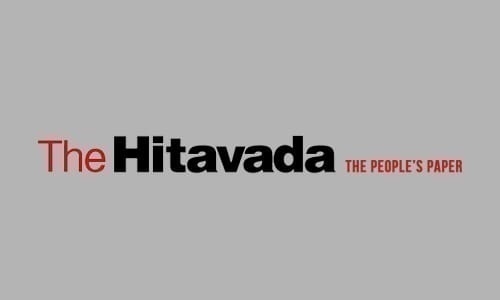Leadership Tussle In Iran
23 May 2024 08:48:40

By Girish Linganna
THE death of Iranian President Ebrahim Raisi in a helicopter crash would likely exacerbate the power struggle among hardline factions within the Islamic Republic. These factions are vying for influence in the s
uccession of the aging Ayatollah Ali Khamenei as Supreme Leader.
Despite concerns regarding Khamenei’s health, he maintains a strong grip on power. Experts, whose views were shared with the South China Morning Post (SCMP), believe that Raisi’s death would not alter Tehran’s strategic policy of avoiding direct conflict with the United States and Israel.
Hamidreza Azizi, an Iranian academic and visiting fellow at the German Institute for International and Security Affairs in Berlin, told the South China Morning Post (SCMP) that Iran’s foreign policy is likely to stay the course, despite any domestic implications.
Azizi emphasised that Iran’s strategic decisions are not made by the President, but rather by the Supreme Leader and the Islamic Revolutionary Guard Corps (IRGC). Azizi predicted that Iran would continue to maintain a rigid stance in its relations with the United States and its regional policies. Azizi concluded that Raisi’s death would not have a fundamental or decisive impact on the Iranian system.
Azizi acknowledged that Raisi’s death would influence the power dynamics among hardline factions, but it would not alter the Islamic Republic’s strategic direction in either foreign or domestic policy. Raisi’s unexpected death has left the Iranian leadership with a shortage of potential candidates who possess the charisma necessary to succeed him as President and ultimately become the top contender to succeed Khamenei.
Mehran Haghirian, director of regional initiatives for the London-based think tank, the Bourse and Bazaar Foundation, said that Raisi’s death was undoubtedly a shock to the system. Haghirian noted that Raisi was expected to serve another five years or until Khamenei’s death, after which he was positioned to become the next Supreme Leader.
However, he emphasised that even the IRGC does not currently have a prepared candidate ready to step into Raisi’s shoes. IRGC stands for “Islamic Revolutionary Guard Corps”. It is a branch of the Iranian Armed Forces responsible for protecting the Islamic Republic of Iran’s Islamic system.
While there are numerous individuals within the current system who could potentially replace him, Haghirian pointed out that none are adequately prepared, lack charisma, and there is no consensus on any single figure.
He predicted that a new candidate would emerge quickly, but this selection would likely exacerbate internal divisions.
Azizi noted that factions within the hardline camp were already engaged in a power struggle to secure the position of Speaker of Parliament. Azizi predicted that this rivalry would extend to the presidential race, with different factions vying for control. He highlighted that the upcoming presidential election in July would take place amidst historically low public participation.
Azizi pointed out that only 8% of eligible voters in Tehran participated in the recent parliamentary elections, highlighting the significant challenge of mobilising voters within the next 50 days to participate in the presidential election. Raisi was considered one of three potential candidates to succeed Khamenei as Iran’s Supreme Leader.
Initially, Raisi was viewed as a figurehead controlled by hardliners, who secured his
victory in the 2021 presidential election by disqualifying moderate opponents on
dubious grounds. However, following Khamenei’s rejection of his son Mojtaba’s candidacy due to concerns about hereditary leadership being un-Islamic, Raisi had emerged as a frontrunner to succeed
the Ayatollah.
The only other viable candidate for Supreme Leader is Alireza Arafi, who is currently vying for the position of chairman of the Assembly of Experts. This body will be responsible for selecting the next Supreme Leader upon Khamenei’s death. Arafi is not considered a viable candidate for the Iranian presidency due to
his perceived lack of charisma and the absence of support from influential hardline groups in Tehran.
Vali Nasr, a former US State Department advisor and current professor at Johns Hopkins University, highlights the ongoing debate about the succession, which has long revolved around either Mojtaba Khamenei or an alternative. He anticipates a competition to identify new potential candidates if Mojtaba is not chosen.
Nasr emphasises the importance of this contest, noting the years it took to establish Raisi as a potential supreme leader through his presidency. He concludes that there is
currently no clear alternative candidate in the same category as Raisi. (IPA)
